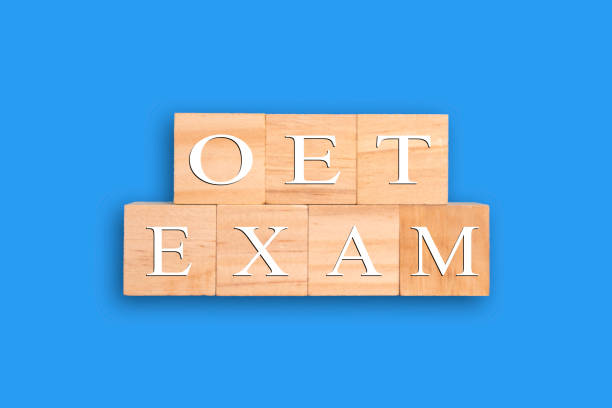How to excel in OET Writing Module at the first attempt?

Mastering the Writing Module of Occupational English Test is the manifestation of a few skills to write a formal referral letter in clinical setting. As it is a language proficiency exam specifically designed for healthcare professionals, an OET candidate must be aware of the assessment criteria of the exam. The Writing module of the OET assesses candidates’ ability to communicate effectively in writing within a healthcare context keeping in mind the Purpose and the Content. Its conciseness, clarity, genre and style, organisation and layout, and layout are assessed. The Writing Module has only one task. The goal of the Writing section is to mimic a real-world situation and gauge a candidate’s ability to respond to typical workplace scenarios. In most cases, candidates are tasked with composing a referral letter. In addition to the communication skills in English, a candidate is expected to organize only the required information in the letter. By taking the OET Test, you will be learning the kinds of vocabulary and phrases you will need every day at work in your new country. Not only will you prove you have the right level of English – you’ll be ready to perform in the global healthcare industry. A few key aspects to consider when preparing for the OET Writing module are appended below: 1. In the OET Writing module candidates are required to produce a piece of writing that is relevant to the healthcare profession and meets the needs of the intended recipient. 2. It is crucial for candidates to understand the purpose and audience of each task. For instance, in the letter task, candidates may be asked to write a letter of introduction, explanation, or advice to a patient, colleague, or supervisor. In the referral or discharge letter task, candidates are expected to summarize a patient’s condition and treatment plan concisely and accurately. 3. Organizing the content logically is essential for clarity and coherence. Candidates should follow a clear structure for their writing, including an introduction, body paragraphs, and a conclusion. Each paragraph should focus on a single main idea and be well-developed with relevant details. 4. The language used should be professional, clear, and appropriate for the healthcare context. Candidates should demonstrate a wide range of medical vocabulary and terminology related to their specific profession. Additionally, they should pay attention to grammar, punctuation, and spelling to ensure accuracy and clarity. You can also read: How to Prepare for the OET Exam: A Comprehensive Guide 5. Time management is crucial during the exam. Candidates should allocate enough time for planning, writing, and reviewing their work. It is essential to prioritize tasks based on their importance and allocate time accordingly to complete both tasks within the given timeframe. 6. Like any other skill, writing for the OET requires practice. Candidates should familiarize themselves with the format of the exam and practice writing within a healthcare context. Taking practice tests and seeking feedback from tutors can help identify areas for improvement and enhance overall performance. In conclusion, mastering the OET Writing module requires a combination of understanding task requirements, organizing content effectively, using appropriate language, managing time efficiently, and consistent practice. By focusing on these key aspects, candidates can increase their chances of success in the OET exam and advance their healthcare career. Want to be a part of the Best OET Coaching Centre in Kerala? Join now: https://bghud.com/all-courses/
Unlocking Nursing Excellence: Empowering Nurses with Proficient English Skills at B-GHUD Academy

The world is fast changing and so is nursing. Newer opportunities to reach excellence as a professional and as an individual knock the doors of aspiring nurses. It is always good to learn that contemporary nursing has so much more to offer than traditional nursing. In progressive nations, nursing as a profession has reached greater heights than what the same offers here in India. Nursing informatics, nursing research, nursing advocacy, entrepreneurship, intrapreneurship, tele- nursing and many more such spaces are opening up. The most needed quality to pursue any of these newer offshoots of this profession is the skill of effective communication. More and more universities across the globe have identified the need to equip aspiring nursing students with the skill to initiate and engage in professional communication in a clinical setting. Interestingly, the enrichment that happens to cognition and comprehension with the learning to use Lingua Franca efficiently is the perhaps the only tool that a nurse may need other than other professional and personal skills. Therefore, it is very much important to learn English in such a way that, the learning helps you to extend your professional frontier. Further, the training centre you choose to get trained for your English proficiency tests must be one such that gives you more than a clubbing score. It should up- skill your English. There are so many coaching centres that claim to be the best. Choose your coaching centre based on its consistent results and quality training. B-GHUD academy at Mavelikkara holds a legacy of 28 years in the field of training job aspirants across various sectors to reach their dream job. Why B-GHUD academy is different because, it keeps on challenging its own course of action. It does rigorous check of its teaching and learning processes and always keeps an open and accepting front to improve its own standards. B-GHUD academy is no opponent to any other institutes, as we regard ourselves as a developing institute even though our results have been scintillating. We have our own materials that aim not just at getting a mere gate entry score, but at providing an exhaustive experience of learning to use English with confidence, without mistakes. Learning English not limited to learning grammar. It should enable a user to comprehend and produce language with precision. This is what B-GHUD academy aims at. We are in the process of ensuring the safety of the future of young nurses and experienced nurses alike. We consider ourselves to be lucky that we are getting the opportunity to help nurses crack OET. Remember that, action speaks more than words. Our coaching is not about spewing empty promises. We value your time, effort, and money at B-GHUD academy. We welcome you to experience and learn English along with us. Let’s march forward hand and hand. When you reach your goal, we feel fulfilled. Yes dear nurse, you matter a lot to us. Your success is what makes B-GHUD academy strong.
How to crack OET at the 1st attempt?

We would like to enlighten you on a few easy steps on how to get B band in all the 4 MODULES in OET at the 1st attempt. It is very important for you to acquaint with the test format, including the structure of each subtest (module) and the assessment criteria of OET. Learnig the marking criteria is of great importance because you have to perform well, realising the subtle aspects of this international exam of English exclusively for healthcare professionals. Determine your current English proficiency level. You may need to take a practice test to gauge your strengths and weaknesses. Invest in quality OET study materials and practice tests so that on the day of the exam you will be familiarised with the test and thereby you can avoid exam stress. Creating a study plan that allocates sufficient time for each subtest would be of great help. Consistent daily practice is essential. You should be well-versed with your language skills such as sentence structure, grammatical accuracy, the agreement of subject and verb, spelling and punctuation. Work on improving your English language skills, focusing on areas where you need the most improvement. This includes grammar, vocabulary, and pronunciation. Regularly practise sample OET questions and exercises. Practise on simulate (exam type) test conditions as closely as possible, including time limits. If possible, get feedback on your speaking and writing from a qualified OET tutor or language expert. Learn effective time management during the test is of vital importance. Allocate a specific amount of time for each task, and practise completing tasks within these time limits. Test Strategies: Familiarize yourself with test-taking strategies, such as skimming and scanning for reading, note-taking for listening, and structuring your writing and speaking responses. How to be cool and calm us a quality to be attained. On the test day, stay calm and focused. Manage your time wisely during the exam and make sure to review your work if time allows. Improving your Communication Skills is also of great importance: For the speaking subtest, practise effective communication and role-play scenarios relevant to your profession. Keep up to date with any changes or updates to the OET, as the test may evolve over time. Remember that success on the OET often comes with consistent effort and preparation. Good luck with your OET exam! You can do it, provided you allocate enough for this life changing English exam.
